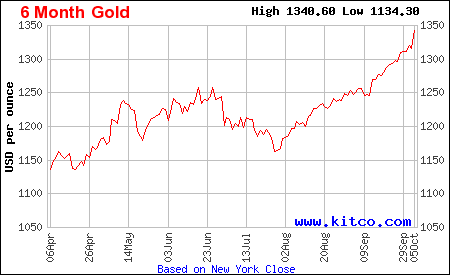NOTE: Every week I write a Client Note for my clients. For a limited time, I am allowing non-clients to sign up and receive the Client Note. You can sign up at the top right hand corner of the website. I will also be posting the notes on my blog with a 24-48 hour delay from time to time. Here is this week’s.
*****
It is an extraordinary measure for a central bank, particularly the purchase of financial assets to encourage the decline in risk premiums. To be explicit on that point and to extensively influence market interest rates and risk premiums, the Bank judges it necessary to establish a program on its balance sheet through which the bank will purchase various financial assets.
The Committee will continue to monitor the economic outlook and financial developments and is prepared to provide additional accommodation if needed to support the economic recovery and to return inflation, over time, to levels consistent with its mandate.
On Tuesday, the Bank of Japan surprised markets by announcing a program of quantitative easing. In order to weaken the yen, keep interest rates low and stimulate financial markets and the economy, the BOJ said it will buy 5 trillion yen ($60 billion) worth of financial assets over the next year. 3.5 trillion yen will be used for government bonds, 1 trillion for commercial paper, asset backed commercial paper and corporate bonds, presumably leaving 500 billion for ETFs and REITs. Wall Street loves nothing more than easy money so financial markets surged upwards in response.
Two weeks ago the Fed signalled to financial markets that it stands ready to do the same – QE2 is what people on Wall Street are calling it – by saying it is “prepared to provide additional accommodation if needed”.
The Wall Street Journal aptly titled their lead front page story this morning
“Central Banks Open Spigot”. Brazil’s Finance Minister Guido Mantega was so fed up last Monday he lashed out saying “we’re in the midst of an international currency war” (quoted in
“Currency Wars: A Fight To Be Weaker”,
The Wall Street Journal, September 29, C1).
Why are central bankers doing this?
They are trying to stimulate stagnating economies in a number of ways. They want to lower the value of their currencies in order to stimulate exports. They are keeping interest rates low in order to stimulate borrowing. They are buying financial assets in order to stimulate financial markets.
However, there are a number of problems with this sort of policy.
On the export front, with everybody trying to lower their currency against everyone else in order to stimulate exports, nobody wins. In fact, everybody loses in a race to the bottom because protectionism decrease overall worldwide trade.
By lowering interest rates and printing money to buy financial assets, economic activity and financial markets are stimulated. But, over the long term, these policies destroy the value of the currency and cause inflation.
That’s why the asset that has been performing best over the last couple months is gold. From just above $1150 in late July, gold hit another closing high Wednesday in New York just below $1350.
Conversely, the dollar is at a 9-month low.
*****
The best money managers in the world are well aware of what’s going on.
David Tepper of Appaloosa Asset Management caused quite a stir when he went on CNBC’s Squawk Box two Friday’s ago and said the Fed was creating a situation in which investors can’t lose:
Either the economy is going to get better by itself in the next three months and what assets are going to do well? You can guess the assets. Stocks are going to do well. Bonds won’t do so well. Gold won’t do as well. Or the economy is not going to pick up in the next three months and the Fed is going to come in with QE. Then what’s going to do well? Everything. In the near term, everything (quoted in
“Tepper Comments Underscore QE Danger: Traders”, Bob Pisani, TraderTalk, September 24).
A couple days later, John Paulson gave a speech at NYU calling for double digit inflation by 2012 as a result of government policies. He gave three investment recommendations:
(1) Buy Gold
(2) Sell Bonds
Tepper is talking about the short term while Paulson is talking about the medium to long term but both are focusing on the same thing: the government is doing everything it can to prop up the economy and that will have decisive consequences for both the short and long term. Adjust your investments accordingly.
All of our accounts are at highs for the year due to our significant gold and gold equity positions.
SPECIAL OFFER – FREE INVESTMENT REVIEW: For a limited time I am offering a free investment review. Pick any stock, bond, ETF or mutual fund. I will do a comprehensive fundamental/macro/technical analysis, write a concise analyst report, and consult with you for 30 minutes by phone or in person for free.
Greg Feirman
Founder & CEO
A Registered Investment Advisor
9700 Village Center Dr. #50H
Granite Bay, CA 95746
(916) 224-0113
CALL NOW FOR A FREE INVESTMENT REVIEW!

